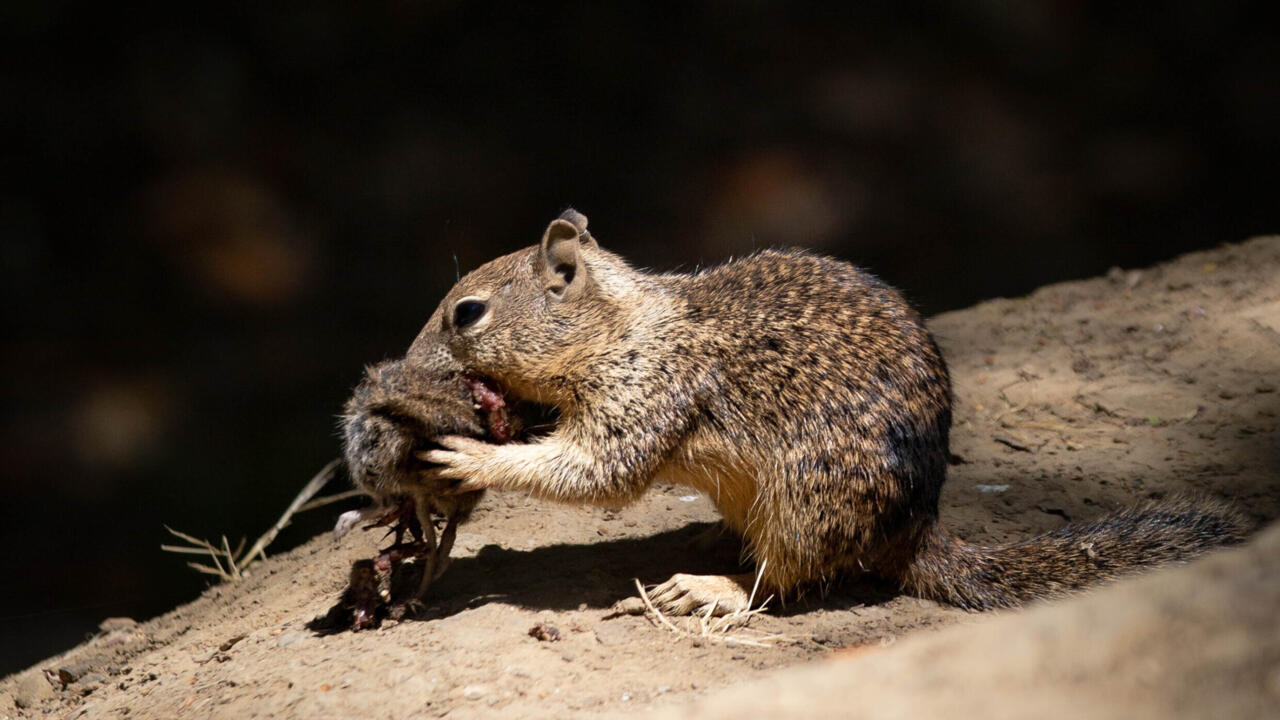That’s the startling finding of a new study published Wednesday in the Journal of Ethology — the first to document widespread carnivorous behavior in these seemingly innocent creatures.
“There is always something new to learn and wild animals continue to surprise us,” lead author Jennifer E. Smith, an associate professor of biology at the University of Wisconsin-Eau Claire told AFP.
“In a changing world with many technological advances, there is no replacement for direct observation of natural history, including watching the squirrels and birds that often visit our backyards.”
The observations were made this summer, during the 12th year of a long-term study conducted at Briones Regional Park in Contra Costa County, California.
Between June and July, researchers recorded 74 interactions involving California ground squirrels and voles, with 42 percent of them involving active hunting of their fellow rodents.
Co-author Sonja Wild, a postdoctoral researcher at the University of California, Davis, admitted she was initially skeptical of the reports brought to her by undergraduate students who first witnessed the behavior.
“I could barely believe my eyes,” said Wild. But “once we started looking, we saw it everywhere.”
It was previously known that as many as 30 species of squirrels opportunistically consume meat, ranging from small fish to birds. However, it was unclear whether this behavior stemmed from scavenging or active predation.
The new study is the first to confirm that hunting is, in fact, a common behavior.
Researchers observed squirrels crouching low to the ground before ambushing their prey, though more often, they chased voles, pounced, and delivered a neck bite followed by vigorous shaking.






